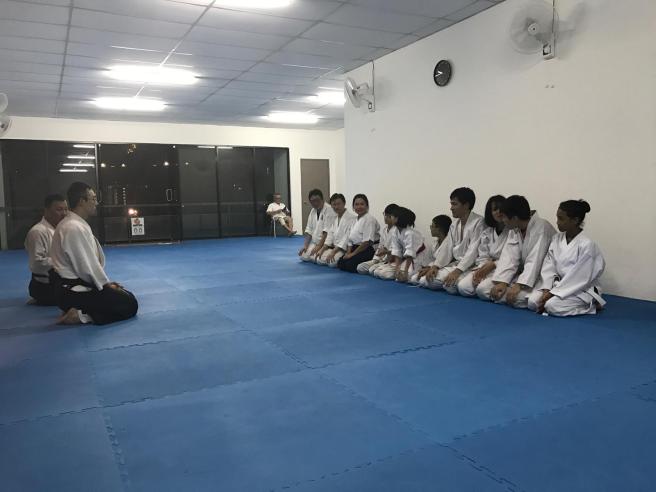People are often not aware of their own mistakes, and change is often difficult.
Chief Instructor Tey
Every aikidoka makes mistakes, especially if they are novices. Even in life, there is little success to be found unless you fail in the process, mature, recover and try again. The same can be said of training in Aikido.
We have all done it before. Universally common mistakes occur in Aikido training worldwide and are universally exhibited by beginners and yudansha alike. Mistakes like not moving the entire body as a single unit, relying on upper-body strength instead of being confident in the technique, a general lack of relaxation during training, holding one’s breath instead of breathing properly, improper ukemi resulting in vulnerability to injury, etc. Such mistakes are general in the sense that they are not technique specific. Once the novice practitioner examines his techniques in-depth, a plethora of technique specific shortcomings can be observed. For example, over extension leading to a loss of balance during kokyu-nage or raising the hands too high during shiho-nage which allows the opponent to easily counter. These are typical mistakes that every aikidoka would be acutely aware of, yet change does not come easy for the practitioner.
Feedback is of the utmost importance to the aikidoka. When beginners train together, their progression is stymied not because of lack of enthusiasm or commitment, but due to an inability to identify mistakes. Even if the dojo is filled with mirrors, a reflected image of a mistake which is not readily apparent serves no practical purpose for the refinement of the practitioners’ techniques. Therefore the voice of experience should be keenly sought during every practice session. Constructively accepting advice and rebuke, and reflecting upon one’s mistakes, must be an ongoing endeavor.
Having a sempai or an instructor correcting your techniques is not going to be sufficient unless a concious effort to change is being made. If the aikidoka stands corrected and performs a technique better in one training session, there is no guarantee that the same technique will be better performed in the next practice session. We are all culpable when it comes to forgetting the instruction we’ve received and muscle memory obtained from doing a technique wrong for many sessions will keep an aikidoka from improving. Therefore, an important element to furthering oneself in Aikido is sufficient focus on one’s studies, and the diligent concious retention of past instruction.
Progress comes to those who train and train; reliance on secret techniques will get you nowhere.
O-Sensei Morihei Ueshiba
1.498869
103.778885


